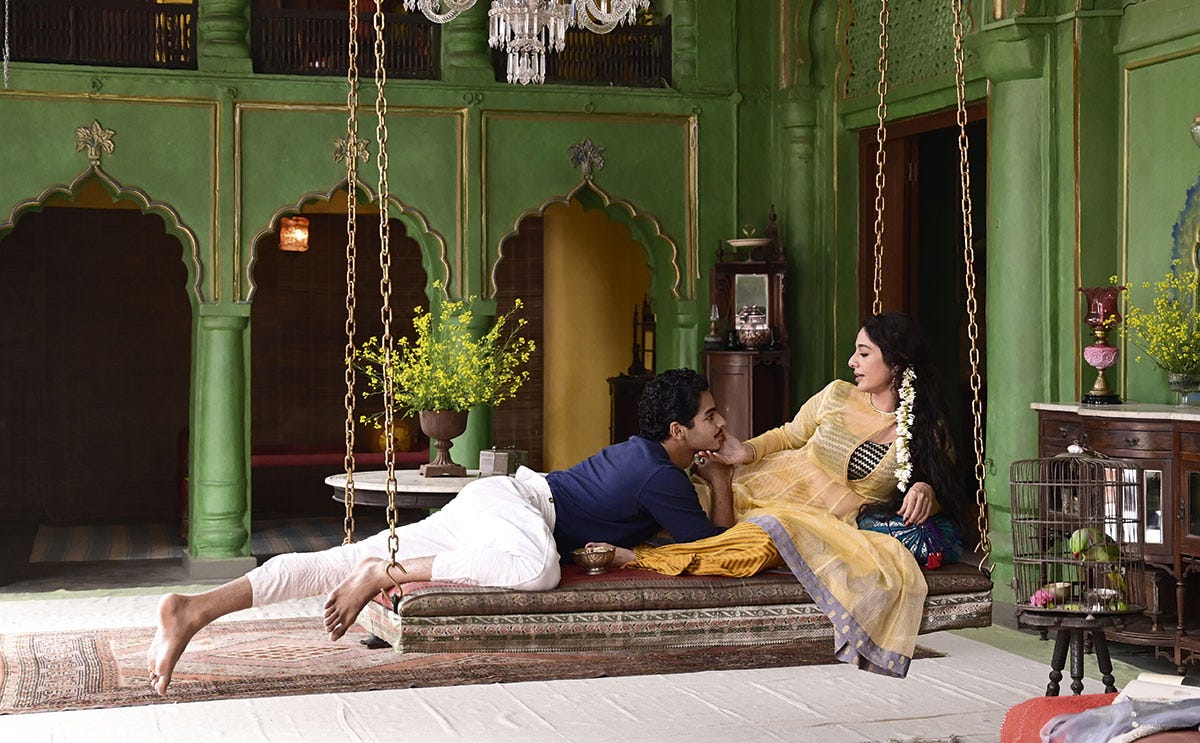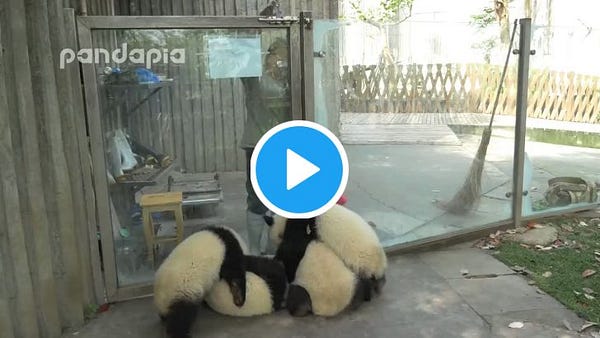A Suitable Boy
This entire lock down I’ve spent either reading ‘A Suitable Boy’ or watching ‘A Suitable Boy’

In 1993, poet and author Vikram Seth’s illustrious magnum opus ‘A Suitable Boy’ was published. The book, at 1,349 pages and 591,552 words, is one of the longest novels published in a single volume in the English language. It’s one of those books that’s on every ‘Must Read Books by Indian Authors’ list. It’s a book that is heavily referenced and quoted by people in India and outside India who read and consume literature extensively.
I never really got around to reading it because. Well, it’s too long and I didn’t have the time (or patience) for it. Until June of this year - I graduated during a pandemic with bleak job prospects. There was nowhere to go and nothing to do. Seemed like a great time to start reading this book. And boy, was it worth the time and patience!
‘A Suitable Boy’ is set in 1951 in a newly independent and partitioned India. The heroine of the novel, Lata is in college and her mother Mrs. Rupa Mehra is on a quest to find a suitable boy for her daughter to marry. In the background is a host of social, economic and political issues that arise in a young India. The first general election is underway, there’s growing Hindu-Muslim religious unrest, influx of refugees, not enough food to feed the population, abolition of the Zamindari system, unemployment, and spillover problems from the British Raj.
There are so many sub-plots that run parallel to the main plot. Every theme is explored in great detail and every side character is provided with a complete story arc. Seth so wonderfully deconstructs and distills themes of caste, discrimination, partition, religion, marriage and so much more; with sensitivity and knowledge that it’s easy to forget that this is a work of fiction written in the 90’s about the 50’s.
In one place in the book, Lata worries about her future because there aren’t many jobs, the economy is crashing, the country is struggling, and the threat of famine is evident. Replace famine with pandemic and all of this still holds true. It’s comforting in a way to realize that our struggles and anxieties aren’t unique. People long before us have been dealing with the same troubles and people long after will be dealing with it too. Time will carry on regardless of our turmoil and that instills me with hope.
Throughout the length of the book, we are introduced to the Mehra family, their acquaintances, the various suitors competing for Lata and parallel to the Mehras’ story, is the story of Maan Kapoor. He is Lata’s older sister’s brother-in-law and he has an affair with a Muslim courtesan that has unforeseen, deep ramifications for the characters in the book.
In July, BBC released a six-part miniseries based on the book, also called ‘A Suitable Boy’. The show is directed by Mira Nair and stars Tabu (as the courtesan), Ishaan Khatter (as Maan) among a stellar ensemble cast that features Randeep Hooda, Sahana Goswami, Rasika Dugal, Ram Kapoor, Vijay Verma among many others.
(The show is currently available for viewing only in the UK and will release worldwide on Netflix sometime in Sep/Oct. I’m currently watching the show not-very-legally; I just couldn’t wait.)

Ishaan Khatter (Shahid Kapoor’s half-brother) is such a revelation! I’ve not seen any of his previous work, and (incorrectly) assumed he was just another star kid, who couldn’t act (Janhvi Kapoor, Ananya Pandey, Sara Ali Khan - I’m looking at you). He holds his weight sharing screen space with seasoned actors and performs with a restraint that is quite rare. It also helps that he’s easy on the eyes, but he’s more than just a pretty face. He perfectly embodies the conflict of his character and my favorite scenes in the show are of him with Tabu. Tabu is ageless. She is graceful and gorgeous in every frame that she inhabits. This woman has managed to stay relevant for over twenty-five years in an extremely ageist industry so props to her for that.
Reading the book is a cinematic experience in itself the way Seth manages to paint the backdrop changes with urgency and vividness, but it is a challenge when a book is to be translated onto celluloid. A common gripe usually - the movie is not as good as the book. So, I was very curious to see how they would condense a book with so many layers and characters and plot-points into a six episode series, especially considering the show was being produced for an international audience who have almost no context about Indian history and politics.
(The show is BBC’s first with an all people-of-color cast which pissed off a number of conservative white Brits, judging by the YouTube comments on the trailer.)
I love the show! The team has done a really good job in ensuring that it appeals to fervent fans of the book as well as people who have never read the book and have no context about the layered nuances of Indian society. The art direction of the show is historically accurate and some of the dialogues in the show are exact copies from the book. Of course, they’ve omitted a lot of stuff that happens in the book to make for the time limit, but you know what, it works.

A major portion of ‘A Suitable Boy’ is set in Calcutta and it’s fascinating to watch 1950’s Calcutta in all its charm and glory, when trams and ambassador cars were plenty and China Town tango parties and Calcutta Club lunches were common. I was pining and being nostalgic for this time until I saw this tweet.


1950’s Calcutta was not fun for my grandparents, who were refugees from East Bengal, and they were probably too busy in the 50’s trying to build a life in a new place with little to no possessions. I’m acutely aware of my privileges and grateful for the opportunities I now have.
The classism and caste-ism of post-colonial India is still very much prevalent 73 years after Independence. Makes me wonder- how much have we truly progressed since the British left (if at all we have)?
This is a great book to read during the pandemic because it reiterates that terrible things have happened to the people of this planet before. The earth continued spinning, the people survived and so, will we.
(Also, this book is long so if you start with reading the book and then follow it up with watching the show, it’ll keep you busy for a while.)
“We imagine that as soon as we are torn out of our habitual path all is over, but it is only the beginning of something new and good. As long as there is life, there is happiness. There is a great deal, a great deal before us.” - Leo Tolstoy in War and Peace, another great read during the pandemic.
Gifts from The Internet
to get your Oxycontin going, watch these cute and fluffy pandas acting like a bunch of rowdy babies


my personal favorite cuties aka K-Pop behemoth BTS have a new song out. this is their first full song in English and the music video is already YouTube’s most viewed video in the first 24 hrs
Diljit paaji also has a new song out and in this video he makes the girl he’s flirting with use sanitizer before shaking his hand. (but no one is wearing a mask or social distancing so go figure)
This New Yorker article deep dives into what all this (quarantine) boredom is doing to our brains (spoiler alert: boredom is good). We are conditioned by capitalism and all the million ways we are entertained (Netflix, social media, video games, etc.) to counteract every instance of being still. But boredom breeds creativity, it is a way for our brain to rewire itself from the various stressors in life. It gives us space to Think. In fact, by acting on every impulse to counteract boredom, we are more susceptible to anxiety.
This one-liner from New York Times about India has me confused - should i be hopeful or worried?
It is an important time in India, a huge, vibrant and freewheeling democracy with a charismatic prime minister pursuing a Hindu nationalist agenda amid a stalling economy, deep societal divisions and the challenges of the coronavirus.
I love to hear from you, so send me your thoughts and feelings™ by simply replying to the email or using the comment feature on the website.
Thanks for reading!



